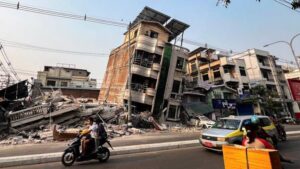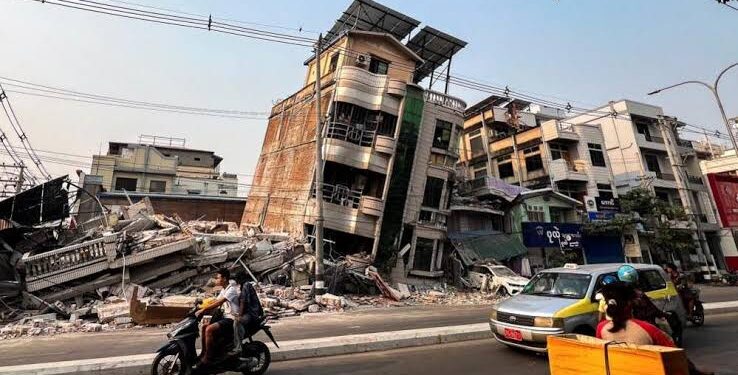Two years ago, as Cyclone Mocha barreled towards Myanmar’s western coast, Senior General Min Aung Hlaing seemed oblivious to the impending disaster. With wind speeds reaching up to 280 kilometers per hour (175 mph), the cyclone was predicted to wreak havoc. Yet, Min Aung Hlaing and his cabinet were far from the storm’s path, attending a Buddhist temple consecration in the country’s east. There, they engaged in yadaya—a superstitious ritual seeking divine protection.
Fast forward to the present, and Myanmar is reeling from a new catastrophe. A devastating 7.7 magnitude earthquake recently struck, leaving the cities of Mandalay and Sagaing in ruins. More than 2,700 people have perished, with many locals interpreting the disaster as a divine message aimed at the country’s military rulers, particularly Min Aung Hlaing.


Astrologers in Myanmar, a nation deeply influenced by superstitions, have suggested that the earthquake signals imminent changes in leadership. With the quake occurring on a Friday during a new moon, predictions of scarcity in rice and water resources have added to fears of rising prices and escalating violence. Some experts are even forecasting that Min Aung Hlaing’s rule is nearing its end.
Known for his belief in astrology, Min Aung Hlaing has long been rumored to govern the nation through superstitions, relying on astrological signs to guide his decisions. However, the recent disaster has some experts questioning his future. “Nature itself is now punishing him,” said a retired military officer, adding that the earthquake may mark the beginning of his downfall.
The earthquake follows just one day after Min Aung Hlaing presided over Myanmar’s Armed Forces Day, a reminder of the ongoing civil war that has claimed over 6,000 civilian lives. As the military regime continues its brutal crackdown on dissent, the earthquake’s symbolism has fueled rumors that the military leader’s reign may soon come to an end—whether by political upheaval or nature’s own hand.









